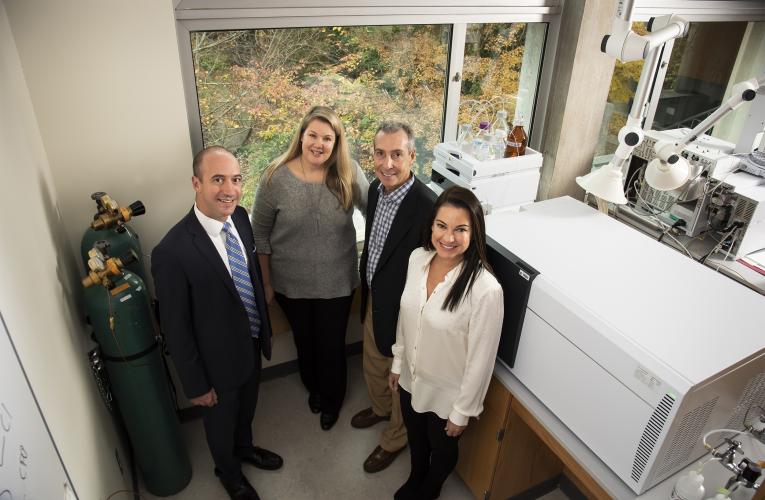Keith Lawrence, 919/681-8059, keith.lawrence@duke.edu
DURHAM, N.C. — A gift to Duke University’s Nicholas School of the Environment will allow the school to establish a research laboratory in “environmental exposomics,” an emerging scientific field that assesses the cumulative effects of environmental contaminants on human health.
In recognition of the $1 million gift from Michael S. Falk and Annie Falk, Duke’s Board of Trustees recently approved the facility be named the Michael and Annie Falk Foundation Environmental Exposomics Laboratory.
Exposomics aims to measure people’s cumulative exposures to environmental contaminants over the course of their life and identify how these combined exposures influence the risk of developing cancer and other diseases.
“Genetics, on its own, has been found to account for only about 10 percent of all diseases. The remaining 90 percent appear to be linked to environmental causes or complex interactions of environmental and genetic factors,” said Heather Stapleton, associate professor of environmental chemistry at Duke and co-principal investigator of the lab.
Exposomics combines the power of big data and the precision of molecular epidemiology to give scientists a promising new way to investigate these complex interactions. Zeroing in on specific mixtures can help determine which chemicals are responsible for increasing a person’s risk of specific diseases such as cancer, cardiovascular disease or neurodevelopmental disorders.
The Falks’ gift will provide funding to hire highly specialized staff members to perform research and data analyses in support of research by scientists at the Nicholas School, the Duke Cancer Institute, the Pratt School of Engineering, and other schools and labs across campus.
The gift will also fund access to additional computational resources through Duke Research Computing, support an environmental exposomics symposium to be hosted at Duke, and fund the development of a new website interface for disseminating and translating the lab’s research findings to scientists and the public.
“This gift by Michael and Annie Falk will help Duke remain at the forefront of efforts to identify the environmental causes of disease and develop more effective ways to prevent or reduce exposures,” said Toddi Steelman, Stanback Dean of the Nicholas School.
“It positions us very competitively for additional research funding and for expanded collaborations with research units from across Duke, Duke Health, and other universities and institutions.”
Lee Ferguson, associate professor of environmental science and engineering and co-principal investigator of the laboratory, added, “Receiving this level of support from the Falks allows us to ramp up our lab’s analytical and data informatics capabilities so we can get right to work shedding light on the environmental causes of diseases.”
Michael and Annie Falk are members of the Nicholas School Board of Visitors and have also served the university as members of the Duke Parents Committee. Their daughters, Mikaela and Gianna, are both Duke graduates.
“The work at the exposomics lab is deeply personal to us,” said Annie Falk. “About 20 years ago, I had a frightening exposure to unknown household toxins which made me sick and fearful for my life. We eventually discovered that my incapacitating symptoms were caused by exposure to the building products used during the renovation of our home. This led us to educate ourselves on exposure science, where we came to understand the importance and support this field needs.”
“Our hope is that this lab will advance the public’s understanding of how chemicals in consumer products and the natural environment affect human health,” said Michael Falk. “We also hope that this work helps people protect themselves and their families from some of the biggest -- but often preventable -- health threats linked to environmental causes and lifestyle choices, starting in utero and throughout their lifetimes.”
###




